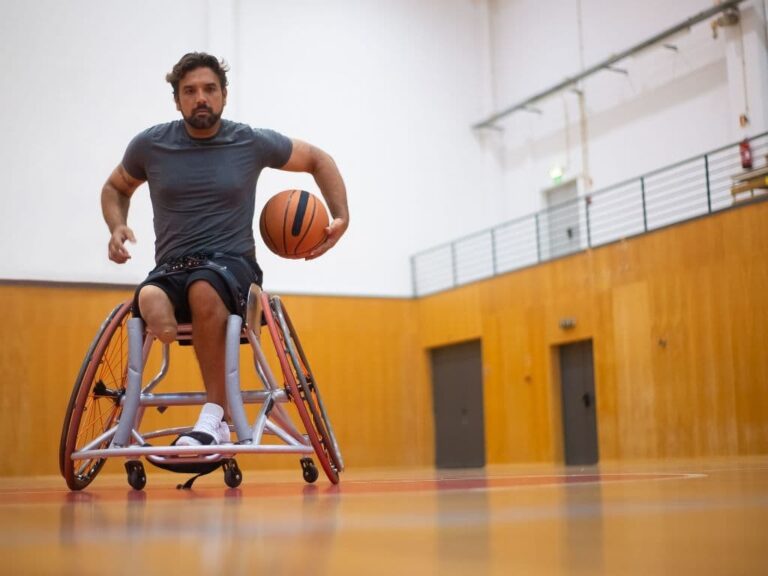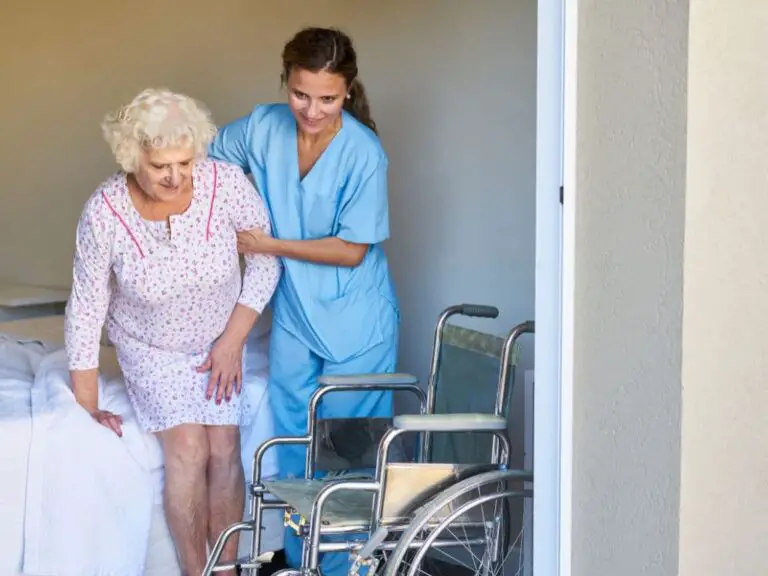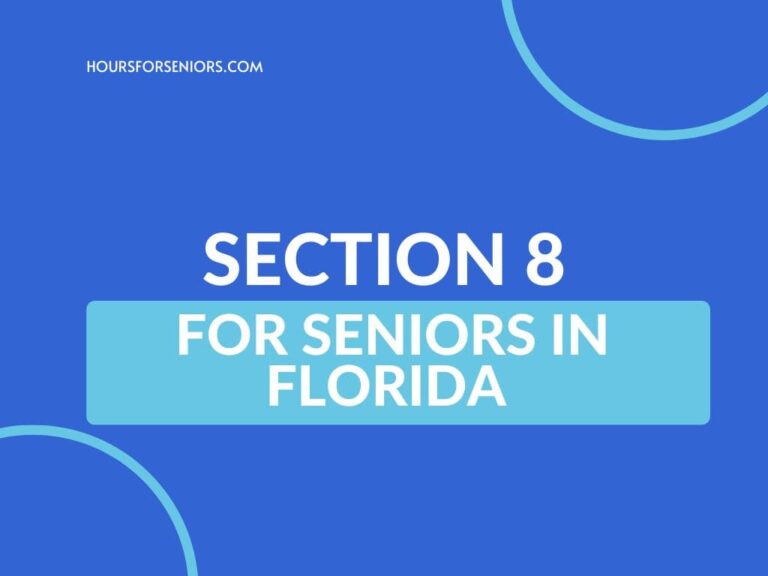Who Qualifies for Low Income Senior Housing in Florida?
Finding affordable housing can be a significant challenge for seniors on fixed incomes in Florida. Fortunately, there are programs available to assist low-income seniors with accessing safe, comfortable, and affordable housing options. Determining eligibility for these programs requires examining factors like income limits, age requirements, disabilities, and more.
Low-income seniors in Florida aged 62 and above qualify for Low Income Senior Housing if their income is at or below 50% of the Area Median Income (AMI) and their assets, excluding primary homes and retirement accounts, are less than $50,000. Eligibility also requires U.S. citizenship or approved immigration status and a clean criminal record, particularly free of recent drug-related or violent offenses. Other considerations include rental history, household size, and non-full-time student status.
Here is a table summarizing the key qualification requirements for low income senior housing programs in Florida:
| Requirement | Section 8 | Public Housing | LIHTC | Section 202 | Section 515 |
|---|---|---|---|---|---|
| Income Limits | 50% AMI | 50-80% AMI | Varies | 50% AMI | 50% AMI |
| Asset Limits | $50,000 | Varies | None | $50,000 | $50,000 |
| Age | 62+ | Varies | 62+ | 62+ | 62+ |
| U.S. Citizenship | Required | Required | Required | Required | Required |
| Criminal History | No drug/violent convictions | No drug/violent convictions | Varies | No drug/violent convictions | No drug/violent convictions |
| Rental History | No recent evictions | No recent evictions | Varies | No recent evictions | No recent evictions |
| Disabled Status | May improve priority | May improve priority | May set aside units | May improve priority | May improve priority |

What are the Different Programs for Low Income Senior Housing in Florida?
The main programs that provide rental assistance and affordable housing to low-income seniors in Florida include:
- Section 8 Housing – Also known as the Housing Choice Voucher program, Section 8 housing in Florida provides rental subsidies so low-income tenants only pay 30% of their income toward rent. Eligible seniors receive a voucher they can use to rent private market units.
- Low Income Housing Tax Credit (LIHTC) – The LIHTC program provides tax incentives to developers to construct affordable rental units reserved for low-income residents, including seniors.
- Public Housing – Some public housing developments operated by local housing authorities are designated solely for elderly and disabled residents. Rent is subsidized based on income.
- Section 202 – This HUD-funded program provides affordable housing specifically for very low-income seniors aged 62+. Developments may also offer supportive services.
- Section 515 – The Section 515 program provides direct loans to finance rental housing for very low-income, elderly, and disabled individuals in rural areas.
What are the Income and Asset Limits for Low Income Senior Housing in Florida?
The income limits for low income senior housing programs are based on the area median income (AMI) for the county where the housing is located.
For Section 8 housing in Florida, seniors must have incomes at or below 50% of the AMI. The limits adjust by household size – for example, the 2023 income limit for a single senior is $29,200.
Most programs also have asset limits – seniors can’t have assets over a certain amount to qualify. For Section 8, assets must be under $50,000, not including exempt assets like primary homes and retirement accounts. The asset limits help ensure housing resources go to those most in need.
What are the Citizenship and Criminal History Requirements for Low Income Senior Housing in Florida?
To qualify for federally-subsidized housing programs, at least one member of the household must have eligible citizenship or immigration status. This includes U.S. citizens, permanent residents, and refugees/asylees.
Applicants also undergo a criminal background check. Those with recent drug-related or violent criminal convictions may be denied housing assistance. However, housing authorities have discretion in approving applicants with a criminal history who can demonstrate rehabilitation.
Are There Age and Disability Requirements for Low Income Senior Housing in Florida?
For most senior housing programs, the qualifying age is 62 and above. Some Section 202 developments are open to seniors aged 55+, while public housing reserved for seniors may have an age minimum of 65.
Seniors who have a disability may qualify for units specifically set aside for disabled residents. Verification of the disability is required. Disabled seniors may also request reasonable accommodations like wheelchair-accessible units.
What Other Eligibility Requirements Exist for Low Income Senior Housing in Florida?
In addition to income limits and background checks, housing authorities look at:
- Rental history – Seniors can be denied if they were recently evicted or have a pattern of late rental payments.
- Household size – Occupancy limits determine the unit size a senior is eligible for.
- Full-time student status – Seniors attending college full-time are usually ineligible.
Meeting eligibility takes supporting documentation like ID, social security cards, birth certificates, and proof of income and assets. Seniors must also complete applications and interviews.
Here is a section on how to apply for Section 8 housing in Florida that can be added to the article:
How to Apply for Section 8 Housing in Florida
To receive Section 8 rental assistance in Florida, eligible seniors must submit an application to their local public housing authority (PHA). Here are the steps for applying:
- Contact your local PHA – There are 43 PHAs in Florida administering Section 8 vouchers. Find the one in your county or city and learn about their application process.
- Complete an application – Applications require household information like income, assets, rental history, criminal history, citizenship status, and more. PHAs may have paper applications, online portals, or both.
- Gather required documents – To verify eligibility, applicants need to submit ID, birth certificates, social security cards, proof of income/assets, and other documents.
- Complete an interview – The PHA will interview applicants in-person or over the phone to go over the application and documents. This helps confirm eligibility.
- Wait for approval – There is often a waiting list, so it may take time to get final approval. The PHA will notify you by mail if accepted.
- Attend briefing – Once approved, the PHA will schedule a voucher briefing explaining how the program works, your rights and responsibilities, and how to find a rental unit.
- Find suitable housing – You can search for qualified private market rentals that accept Section 8 vouchers, within certain rent limits.
Applying well in advance and ensuring applications are complete with all required documents can help expedite the process of getting approved for Section 8 rental assistance.
Where Can Low Income Senior Housing be Found in Florida?
Low income senior housing can be found across Florida, with greater concentrations in more populated metro areas like Miami, Tampa, Orlando, and Jacksonville. Individual cities and counties typically have multiple affordable senior housing developments, which are often operated by regional housing authorities.
Section 8 rental vouchers allow seniors access to affordable private market rentals in their community. Subsidized senior apartments and HUD-assisted housing is also widely available. In rural areas, Section 515 developments and LIHTC properties cater to low-income elderly residents.
What Resources are Available to Help Find Low Income Senior Housing in Florida?
Seniors can utilize resources like:
- Florida Housing Search – Statewide searchable database of affordable rentals.
- Local housing authorities – Administer Section 8 and public housing programs.
- Florida Department of Elder Affairs – Offers referrals to housing counselors and assistance programs.
- Aging Resource Centers – Nonprofits providing seniors help accessing benefits and services.
With many affordable housing options and available assistance, low-income Florida seniors have resources to help secure safe and stable housing that meets their needs and budget.
Frequently Asked Questions
-
Can a single person get welfare in Florida?
Only households that have dependent children are eligible for Florida Welfare Program Qualifications TANF. To receive benefits, all able-bodied adults must work in the workforce or take part in an employment program.
-
Who qualifies for Florida assistance?
Florida TANF is only available to residents of Florida. You must also be legal alien, qualified alien, or a U.S. citizen in order to be eligible. Unemployed, underemployed, or with very little income are required. Also, you must be at least 18 years old or older.
-
Does SSI check your bank account every month?
This blog post explains that SSI may check your bank accounts from once a year up to six years or whenever you have certain life-changing events. For SSI eligibility, the maximum financial resources available for 2022 is $2,000 for individuals and $3,000 in couples.
-
What city is closest to the California redwoods?
Redwood National and State Parks are located 325 miles (or 6 hours) north of San Francisco. The parklands are approximately 50 miles in length and run from Crescent City (near Oregon’s border) to the Redwood Creek watershed, south of Orick, CA.
-
How much pension do senior citizens get?
Benefits. Based on the amount of state pension, a monthly pension between Rs 600 and Rs 1000.
-
What qualifies as low income in Florida 2022?
The federal poverty level for Florida is $13,590 per person as of 2022. HealthCare reports that this number rises by $4720 per family member. This makes $27750 the federal poverty level for a family with four members. gov.
-
What is the average cost of a long term care facility in California?
The cost of long-term care is high and can prove costly. Many people may need to be cared for for a longer period (up to one year). California nursing home prices averaged $290 per day in 2017 with an annual cost close to $110,000.
-
How much do old age homes cost in South Africa?
Costs for retirement homes will differ depending on where you live and how much care is required. Just Retirement’s 2018 study on South Africa’s retirement costs estimated that South African retirees would need to rent a retirement village between R20 000-R60 000.
-
Does Social Security Watch your bank account?
The Social Security Administration can inspect your bank account if you are receiving federal Supplemental Security Income, (SSI). This is done to confirm that you are still meeting the requirements of the program.
-
What is the hardship program in Florida?
This program is what? Florida’s Low Income Home Energy Assistance Program grants local governments and nonprofit agencies money to help low-income households pay for heating and cooling. Most of these funds will be used to pay utility bills.
-
What is the cost of senior living in Florida?
According to Genworth’s 2019 Cost of Care Survey 2019, the average monthly cost of assisted living is $3,500 in Florida for 2020. The state’s cost of assisted living varies widely. It can range from $2,836 per month to $5,375 per month.
-
Is Muir Woods worth visiting?
The Muir Woods National Monument, in general, is an incredible place. It will leave you feeling insignificant standing in front of some the most majestic trees in the country. It is a stunning place that can be enjoyed without the presence of people.
-
At what age do banks stop giving mortgages?
Your chances of getting a mortgage loan are not affected by your age as long as your 18-year old status is maintained. No matter your age, mortgage lenders cannot deny you a request for a loan. However, this does not mean that mortgage lenders must provide you with financing.
-
What does Florida offer seniors?
HCE Program offers financial aid to caregivers who care for seniors. Eligible applicants are eligible for a $160 monthly basic subsidy. The subsidy is available for housing and rent.
-
Are there free old age homes in South Africa?
South Africa doesn’t have any free senior housing facilities. The government does not provide free healthcare or other services to pensioners in South Africa’s older age homes.






